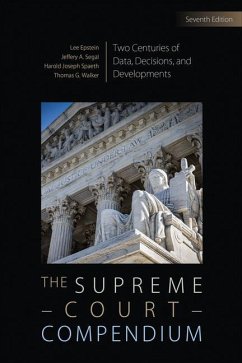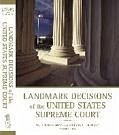The Supreme Court Compendium provides historical and statistical information on the Supreme Court: its institutional development; caseload; decision trends; the background, nomination, and voting behavior of its justices; its relationship with public, governmental, and other judicial bodies; and its impact. With over 180 tables and figures, this new edition is intended to capture the full retrospective picture through the 2013-2014 term of the Roberts Court and the momentous decisions handed down within the last four years, including United States v. Windsor, National Federation of Independent Business v. Sebelius, and Shelby County v. Holder.
Hinweis: Dieser Artikel kann nur an eine deutsche Lieferadresse ausgeliefert werden.
Hinweis: Dieser Artikel kann nur an eine deutsche Lieferadresse ausgeliefert werden.







